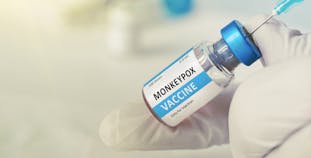Advance Online

Advance Online
Health Care Provider Q&A: Monkeypox and Psoriatic Disease
The NPF Medical Board addresses questions and considerations for those treating people with psoriatic disease.

The NPF Medical Board addresses questions and considerations for those treating people with psoriatic disease.
We use cookies to offer you a better experience and analyze our site traffic. By continuing to use this website, you consent to the use of cookies in accordance with our Privacy Policy.